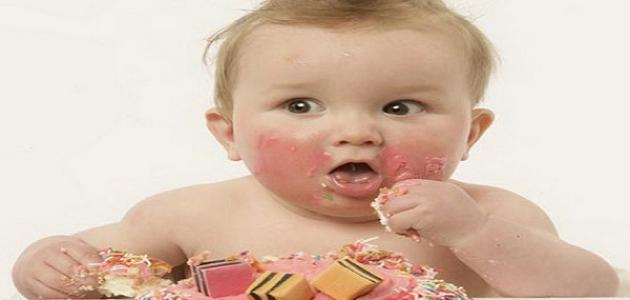Contents
Interconnectedness
Bonding with the child is the most enjoyable part of caring for the child, and it occurs in sensitive time, that is, in the first hours and days after birth.
Materiality between parents and their infant enhances the emotional connection between them, and contributes to the emotional development of the infant, which also affects their physical development, in addition to obtaining the love of the infant. Children who grow up with an adult in their lives fall in his love unconditionally. During embracing, and touching the skin during breastfeeding, as for children who suffer from medical problems, they can be massaged in certain areas, and it is possible to consult a doctor regarding this. [1]
nutrition
Mother's milk is the ideal food for a newborn baby, and if it is not possible to give breast milk, formula milk is used, noting that milk is the ideal food for the infant, and it does not need water, juice, or other liquids. [2] Where the child needs 8-12 feedings per day, that is, once every two to three hours, and it can be known whether the child is hungry through the signs of this, such as: movement, stretching, lip movements, sucking, and crying. [2]
Baby shower
When giving the child his first bath, it is better to have another person help the mother, and to use a basin to put the child in, and the bathing water must be warm and not hot, and it is preferable not to add soap or bubbles in the water, with the importance of making sure of the room temperature , as The newborn baby should be warm during and after bathing. [3]
Carry the baby
To ensure the safety of the child when carrying it, the following guidelines must be adhered to: [4]
- Ensure that the hands are clean by washing them before dealing with the infant, because his immunity is still developing, and the germs that are transmitted to him can cause him illness, and it is also advised to keep a hand sanitizer for guests who wish to carry it.
- Feeling comfortable and confident in carrying the new baby, and the feeling will often be strange, but it is okay, you just have to breathe, and spend some time getting used to.
- Giving the child support at the neck and head, the child's head is the heaviest part of his body, and he will not be able to control his neck muscles before the fourth month , and attention should be paid to the front fontanel, which is the open part of the child's head.
- When picking up the child, a hand must be placed under his head, a hand at the bottom of his body, then his body raised to the level of the chest, and all pregnancy positions are available as long as there is support for the child's neck and head, such as carrying towards the shoulder, which is a position in which the infant is carried when burping, so that his body is parallel to the body The person carrying it, the baby's head resting on his shoulder.
- It is important to observe the mood of the child during his pregnancy in general, in case he is upset or tense, the position must be changed.
- Always make sure that the baby is able to breathe while holding it. [4]
See a doctor
The number of times to see a doctor in the first two months of the child's life depends on his health, and usually the doctor is visited in the first month, and again in the second month, to conduct routine checks for the child, such as examining his growth , feeding, measuring his weight , height, and the circumference of his head, while conducting the examination His physical body, with the need to focus on any previous problems he has, in addition to many things, in order to ensure that the child develops properly, but in the event that the child suffers from certain problems, or suffers from disease, he must see a doctor immediately. [5]
Follow up on vaccinations
During the first months of his life, the child receives the second dose of hepatitis B vaccine from the age of one to two months, and the series of vaccination of the child begins, which includes many vaccines, including: tetanus vaccine and polio vaccine, which helps To protect him from dangerous diseases, and these vaccines may cause the child to have side effects, and they are usually mild, such as fever and irritability, but you must consult a doctor, explain the symptoms to him, and know how to take care of the child during it. [5]
References
- ↑ "A Guide for First-Time Parents" , kidshealth.org , Retrieved 22-4-2018. Edited.
- ^ A b "Feeding Your Newborn: Tips For New Parents" , Www.mayoclinic.org , 17-4-2015, Retrieved 22-4-2018. Edited.
- ↑ "First 24 hours: bathing your baby" , www.babycentre.co.uk , Retrieved 22-4-2018. Edited.
- ^ A b look -of Marcin (3-8-2016), "How To To -Limit Hold of a Newborn Baby" , Www.healthline.com , Retrieved 22-4-2018. Edited.
- ^ A b Elana Pearl Ben-Joseph, "Medical Care And Your 1- To 3-Month- the Old" , Www.kidshealth.org , Retrieved 1-3-2018. Edited.














